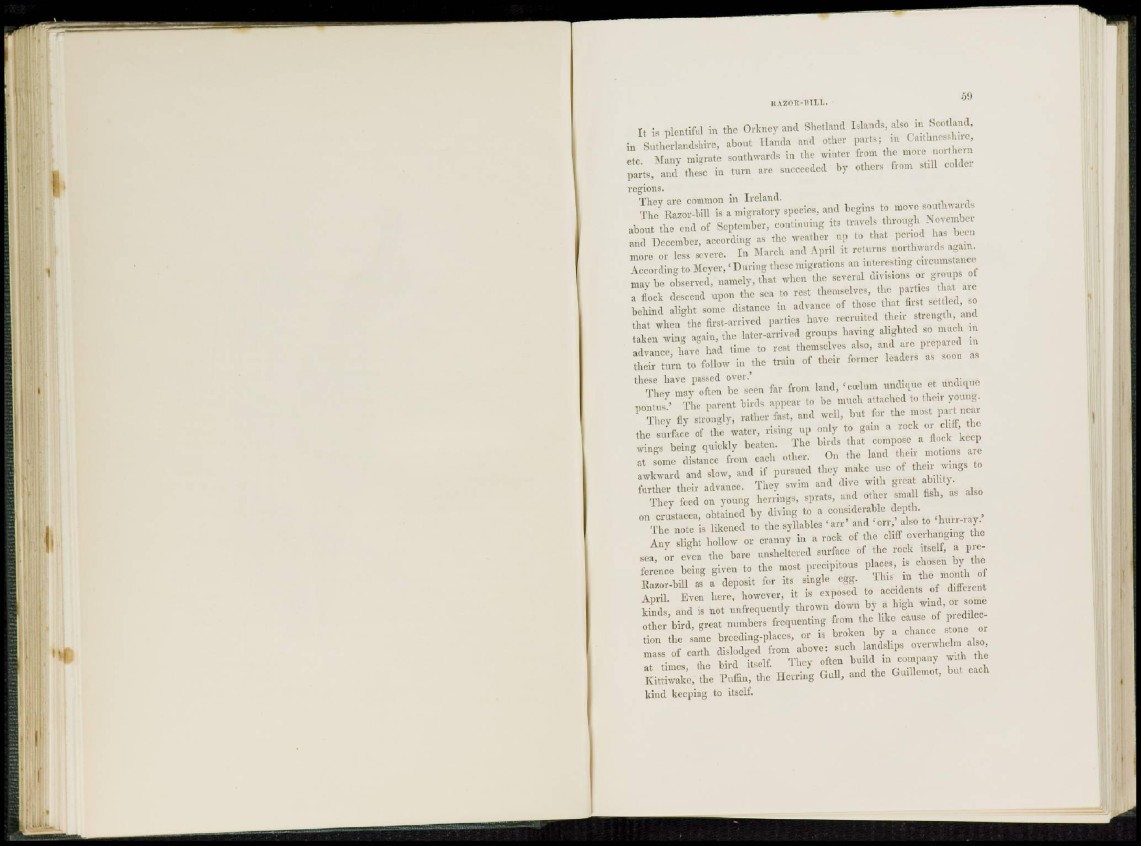
I t is plentiful in the Orkney and Shetland Islands, also in Scotland,
in Sutherlandshiie, about 1 landa and other parts; in Oaitlmrsshire,
etc. Many migrate southwards in the winter from the more northern
parts, and these in turn are succeeded by others from still colder
regions.
They are common in Ireland.
The Razor-bill is a migratory species, and begins to move southwards
about the end of September, continuing its travels through November
and December, according as the weather up to that period lias been
more or less severe. In March and April it returns northwards again.
According to M e y e r , ' During these migrations an interesting circumstance
may be observed, namely, that when the several divisions or groups of
a flock descend upon the sea to rest themselves, the parties that arc
behind alight some distance in advance of those that first settled, so
that when the first-arrived parties have recruited their strength, and
taken wing again, the later-arrived groups having alighted so much in
advance, have had time to rest themselves also, and are prepared in
their turn to follow in the train of their former leaders as soon as
these have passed over.'
They may often be seen far from land, reonnm undique et undique
pontus.' The parent birds appear to be much attached to their young.
They fly stronglv, rather fast, and well, but for the most part near
the surface of the water, rising up only to gain a rock or cliff, the
wings being quickly beaten. The birds that compose a flock keep
at some distance from each other. On the land their motions are
awkward and slow, and if pursued they make use of their wings to
further their advance. They swim and dive with great ability.
They feed on young herrings, sprats, and other small fish, as also
on Crustacea, obtained by diving to a considerable depth.
The note is likened to the syllables 1 a r r and ( o r r , ' also to ' h u r r - r a y .'
Any slight hollow or cranny in a rock of the cliff overhanging the
sea, or even the bare unsheltered surface of the rock itself, a preference
being given to the most precipitous places, is chosen by the
Razor-bill as a deposit for its single egg. This in the month of
April. Even here, however, it is exposed to accidents of different
kinds, and is not unfrequently thrown down by a. high wind, or some
other bird, great numbers frequenting from the like cause of predilection
the same breeding-places, or is. broken by a chance stone or
mass of earth dislodged from above: such landslips overwhelm also,
at times, the bird itself. They often build in company with the
Kittiwakc, the Puffin, the Herring Cull, and the Guillemot, but each
kind keeping to itself.